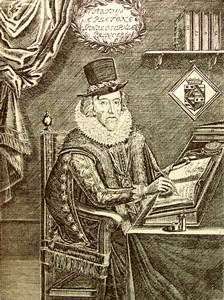Francis Bacon and the plain style
Politician, lawyer, historian, essayist, philosopher, scientist: Francis Bacon was one of the great minds in an age of great minds.
His prose style exemplifies his whole approach to life and learning: it is direct rather than ornate, enquiring rather than expository*.
Bacon's aim was to make his prose above all functional; but this does not mean that it was without grace. Balanced, concise, illuminating: click to see the Baconian aphorism in action:
Footnotes
-
Two teaching methods
Bacon's terms were "inititiative" and "magistral":
The magistral method teaches; the initiative intimates. The magistral requires that what is told should be believed; the initiative that it should be examined.
-
Truth
Truth may perhaps come to the price of a pearl, that showeth best by day, but it will not rise to the price of a diamond or carbuncle, that showeth best in varied lights.
-
Revenge
Revenge is a kind of wild justice, which the more man's nature runs to, the more ought law to weed it out.
A man that studieth revenge keeps his own wounds green [unhealed]. -
Virtue
Certainly virtue is like precious odours, most fragrant when they are incensed or crushed: for prosperity doth best discover vice, but adversity doth best discover virtue.
Virtue is like a rich stone, best plain set.
-
Books
Some books are to be tasted, others to be swallowed, and some few to be chewed and digested; that is some books are to be read only in parts; others to be read but not curiously [thoroughly]; and some few to be read wholly, and with diligence and attention.
